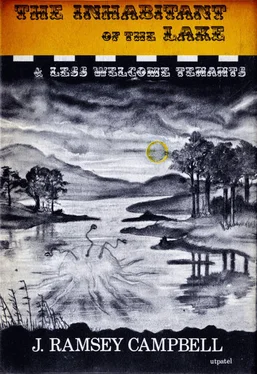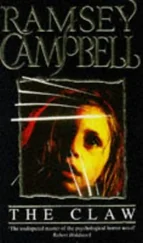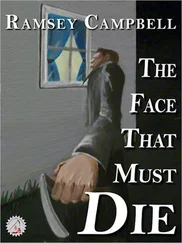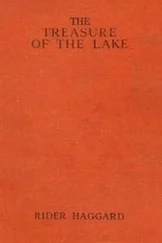After some days had elapsed since his arrival, Phipps began to haunt taverns near the river. It was noticed that he never drank anything, and was once overheard to remark that he was averse to alcohol. It seemed, in fact, that he came there solely to discuss affairs with the less reputable inhabitants of Clotton — in particular, to learn of the prevalent legends of the countryside. In time, of course, he heard of the legend that a demon had once lurked nearby, and showed great interest in the story. The inevitable elaborations reached his ears — the belief of one or two people that a whole race of abominations was entombed somewhere in the vicinity, and the idea that a monstrous underground city could be discovered if one found the entrance which was reputed to lie submerged under the turbulent river waters. Phipps showed unaccountable interest in the further idea that the alien monster or race had been sealed up in some manner and could be released if the prisoning talisman were removed. He apparently held much stock by these curious legends, for he rewarded his informants very highly. To one or two he even suggested that they should send their sons to him for education in the sciences, but those approached were not interested in offers of this sort.
It was in the spring of 1805 that Phipps left his home one night. At least, he must have moved in darkness, for nobody knew of his temporary removal until the silence and lightlessness of the building on Riverside Alley made them aware of it. The strange tenant, it seemed, did not deem it necessary to set any guard upon his house, beyond locking the doors and shuttering the windows; and, indeed, nobody was sufficiently curious to investigate, for the barred house near the river remained silent and untouched.
Some months later, in early November, Phipps returned to take up tenancy again. This time, however, he was not alone, for during his absence he had taken a wife — a woman with a similar corpse-like pallor, who was heard to speak little and walked with a peculiarly stiff gait. What information could be gathered about her was sparse, only revealing that her husband had met her in Temphill, a nearby town in the Cotswolds, where he had journeyed to procure some extremely rare chemicals. They had met at some unnamed gathering, and Phipps showed strange caution in speaking of this mysterious gathering.
Nothing more need be noted about the curious couple in the house bordering the river for some time after this. In late 1806 a son was born in that darkly brooding house, and some consider that this was the actual beginning of a series of events to reach so devastating a climax in 1931. The child, who was named Lionel by his science-seeking father, was born on a day in November, of lashing rain and skies ripped by lightning. The people living near Riverside Alley used to say that a throaty and muffled rumbling had seemed to come from below the ground rather than from the throbbing sky; a few would even insist querulously that the lightning, often striking near the river, had once struck, in the form of a scintillating pillar of energy, directly through the roof of the Phipps homestead, even though no marks of such a phenomenon were afterwards found. The son was, at any rate, born of strange parents, and no such superstitious accounting for his abnormal inclinations in later life need be believed.
It was in 1822, when Lionel Phipps would have been seventeen or eighteen years of age, that his rumoured instruction by his father commenced. Definitely passers-by would see faint gleams of light through the shutters which nearly always now were closed over the windows, and frequently muttered discussions or arguments between father and son were overheard. Once or twice these low-voiced conclaves took on a faintly ritualistic flavour, and those hearing the words would experience a vague sense of unease. A few passersby would become sufficiently interested to peer through a crack in the shutter, upon which they might see the younger Phipps poring over some large and ancient tome, or assisting at some unknown and vaguely sinister-looking apparatus. It seemed obvious that the boy was passing through a period of initiation or instruction in some branch of knowledge, of a definitely outre kind, if one were to judge from reports.
This period, it appears, continued well into the late months of 1823, and at its latter end a change was noted by the neighbours of the antique building on Riverside Alley. For one thing, whereas before only the woman of the household had been seen to leave the house, a series of nocturnal journeys now commenced. These were made by father and son with what seemed an extreme degree of caution, and the usual destination was thought to lie near the river. At one time the two were followed by a puzzled passerby, who returned to report that they had been engaged in some sort of survey of the ancient, moss-grown river bridge. They had even clambered down the banks to balance precariously above the swirling ebon waters, and at one time the father, examining one of the supports by the light of a lantern, let out a cry of what sounded like realization. His son seemed equally surprised when he joined the seeker, and both disappeared under the bridge. The watcher could not view the proceedings without revealing himself, and he made his way home with a turbulent mind.
Then came that particularly anomalous occurrence which may explain a seemingly inexplicable accident which befell a visitor later. The younger Phipps was seen to leave the house following the strange visit to the bridge, and those who took interest in the actions of this family soon discovered that the young man had visited the local general supplier's to purchase pickaxes and spades — for what purpose he would not tell. Those expecting to see the two secretive tenants of the river-bordering lane engaged in some form of excavation were puzzled when no such occupation was noticed.
While no excavation was visible anywhere on the surface, the peculiar evidence of some occupation of the men and the woman was soon evident. The nearby residents began to hear muffled sounds of digging and the noise of metal striking stone from somewhere adjoining the cellar of that much-discussed house in the alley. This series of sounds was not static in its location, for the sounds of excavating metal moved slowly, it seemed, in the direction of the river. These noises continued for some weeks, during which neither of the men was seen at all outside the house, and the woman only seldom. Finally, one night perhaps two months later, a party of men entered the Riverside Alley building, carrying, among other things, doors and frames and an unaccountable amount of material apparently intended for reinforcing the doors. A great noise of working came from below the ground, mostly located near the house and later near the archaic river bridge. After the cessation of the sounds, lights were seen in the room thought to be the laboratory or room where the men carried out their secretive experiments. Next came a reverberation which suggested that the party was returning to the underground region, following which there was a silence lasting some moments, and finally a sound of rushing waters somewhere below the earth. Shouts of amazement and terror were borne to the ears of those listening above, and a few minutes later a sound of something wooden crashing against stone, while an unpleasant reptilian odour rose to the shimmering stars. In an hour or so the party of men departed singly as stealthily as they had come.
Early in 1825, the escape of a criminal from the nearby prison on Mercy Hill led a party of searchers from Brichester to come to Clotton, antedating seekers after something much more hideous by over a century. Despite James Phipps' insistence that no refugee was hidden in his house, one of the group would not be satisfied by this reiteration. He went alone into the forbidding house while the others searched nearby, but when the man had still not joined the main party over an hour later they returned precipitously to Riverside Alley. They discovered him lying by the side of the road outside the house, unconscious and covered with water and slime.
Читать дальше












